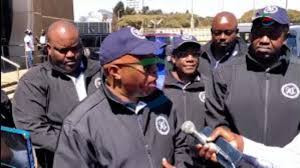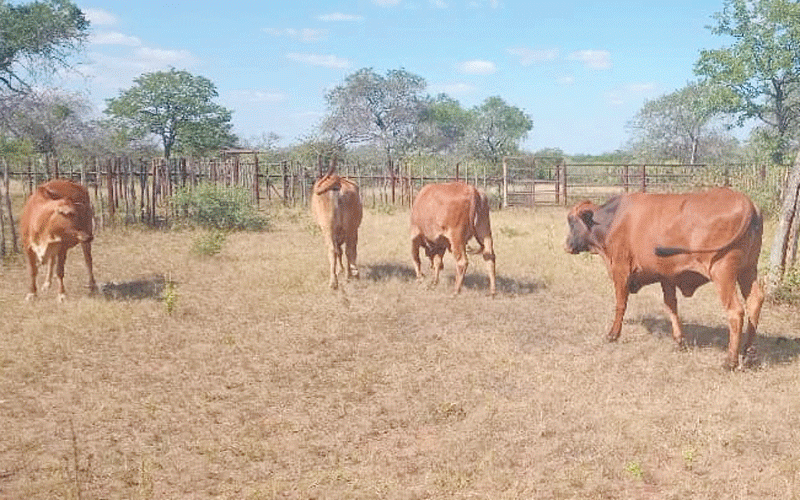
THE Sadc Election Observer Mission (SEOM) on Friday presented its preliminary report on the August 23-24 elections and that came with a lot of laughable, naïve and awkward excitement among the media, politicians, political analysts and government officials.
The main source of this excitability seems to be the remark by Nevers Mumba, the SEOM chair that, in some cases, management of the elections and conduct ran contrary to the provisions of the Zimbabwean constitution, the Electoral Act and Sadc guidelines on elections.
The media went berserk on this and quickly started trading this lazy rumour that Sadc had condemned the just-ended elections.
It’s very misplaced to use the word “condemned” when referring to the report. What the report did was just to highlight grey areas in the manner in which the harmonised elections were conducted, both by the Zimbabwe Electoral Commission (ZEC) and other stakeholders that included political players.
The word “condemned” is too strong to use here.
It implies that the observer mission has already characterised the elections as unfree, unfair and not credible. The SEOM shared its preliminary findings even before the completion of the voting process.
Vote tallying and other such processes had just begun.
In that case, it wouldn’t be possible for the mission to say the elections were not free, not fair and not credible. That can be only when the process is complete.
- News in depth: Fears of violent 2023 polls grow as ED fails to deliver on promises
- Come back home, but we have no jobs: Mangwana
- SA must protect foreign nationals within its borders
- Malema apologises for Elvis Nyathi killing
Keep Reading
Unfortunately, the media reports that used the word “condemned” created the impression all was already cast and dusted. That’s irresponsible journalism, if you ask me, because it creates all sorts of problems. It tends to create this impression that, actually, Zimbabwe’s very own colleagues have condemned the election, meaning that they have said they were not free, not fair, and not credible.
That, in turn, has this potential of causing discontent and unrest.
People will be saying, how can Zanu PF win when Sadc has already condemned the elections?
This is not to say the elections were free, fair and credible. It’s just to emphasise the need for balance and soberness.
Number two, the media has been telling a very big and dangerous lie that this is the first time that a Sadc observer mission has critically reported on the shortcomings of elections in Zimbabwe.
They say Sadc has broken with past tradition whereby it painted a rosy picture about successive elections in Zimbabwe in the name of brotherhood.
You don’t have to search beyond the last election reports in 2018.
Sadc may have been somewhat magnanimous in the way it packaged its reports—the preliminary and final ones—but it clearly highlighted the blights of that election in visible print.
These included: delays in the release of the voters’ roll; lack of transparency in the procurement and printing of ballots; involvement of chiefs in Zanu PF politics in contravention of the constitution; manipulated layout of the ballot to favour one presidential candidate, Emmerson Mnangagwa; poor handling of political parties' concerns by ZEC; little time for the inspection and verification of the voters’ roll; delays in availing the electronic voters’ roll; and based public media that excluded opposition parties.
For the record, the 2023 SEOM report cited the late arrival of ballot papers “and poor administration at some polling stations” and noted that the delays could have discouraged some people from voting even though others still voted.
This was despite the fact that Zec had assured that everything was ready to roll before the elections.
The mission also noted that the voters’ roll was not available at some of the polling stations, names of voters were missing or mismatched, there were no provisions for people with disabilities at some centres and polling officers did not verify whether or not people had already voted at other centres.
In addition, it noted that FAZ was intimidating people. The other areas of concern the Mumba report noted were: alleged gerrymandering by ZEC during the delimitation process; violation of the freedom of assembly that resulted in the banning or disruption of some CCC rallies; amendments to the Criminal Law (Codification and Reform) Act that restricted freedom of expression; an “unprecedented amount of litigation” relating to candidate nomination and steep nomination fees. It also reported that some stakeholders had raised concern about a biased judiciary, voter intimidation and biased election coverage by state-controlled media.
There is something very important in the SEOM report that its critics are choosing to ignore either out of mischief or because they just didn’t read it. The mission says there were NO irregularities at 97% of the stations it observed throughout the 10 administrative provinces.
It also says voting proceeded in an orderly manner at 95% of the centres.
It also highlighted the dominant peace that prevailed and does not blanket things. This is for the benefit of both the media and the critics. While the SEOM noted the deficits as it should, it also highlighted what you would say are significant positives. You then get to understand better, why it is wrong for the media to say Sadc condemned the elections.
That becomes easily unfair on SEOM because it’s brazenly one-sided.
Now, let’s come to the repeated criticisms that the mission was unfairly subjected to out of naïve excitement.
One, the mission must not have referenced Zimbabwean laws in its report because that amounts to disrespect of our parliament and our laws.
Saying amendments to the Criminal Code weaken freedom of expression is dissing the laws we made and translates to interference. Two, some of the things that the mission said were based on hearsay involving interested stakeholders like CCC. Three, the report is based on the personal biases of Nevers Mumba, the chair, who came to Zimbabwe with an axe to grind. Mumba and his boss in Zambia, Hakainde Hichilema are friends of Nelson Chamisa and are, therefore, not impartial. Four, SEOM was misplaced to talk about FAZ — that CIO outfit — because it’s an independent entity with its own political persuasions.
Five, with only 68 observers, SEOM must shut up because that number is too small to adequately cover the whole of Zimbabwe. Six, the mission disparaged our judiciary by talking about concerns it got that judges could be compromised by the fact that they received loans just before the elections.
So, to some quick rejoinders to these cheeky criticisms but, before that, some passing remarks on one of the platforms used to criticise SEOM.
The government called a quick presser where Ziyambi Ziyambi, the Justice minister, blasted SEOM.
It’s not clear why the minister felt he must take all the space to respond.
In this context, several ministries are relevant to the debate. Home Affairs, Finance, Foreign Affairs, etc. So, why Ziyambi alone?
But, getting more specific about the criticisms, it’s utterly dishonest to rap SEOM for noting that some stakeholders were worried about the Criminal Code and its implications on freedom of expression. At no time did the mission say the law must be repealed. What it noted came from what it observed.
Verbatim, this is what the report says: “The mission received concerns from several stakeholder that the recent amendment to the Criminal Law (Codification and Reform Act…has resulted in a severe restriction of the freedom of expression”.
Significantly, in its five points of recommendation, the mission doesn’t recommend that the law must be repealed. So, you wonder where the whole fuss is coming from.
Is it not true that people like me are worried that the Code in its amended form restricts freedom of expression?
Has civil society and other parties not been saying that all along?
Have a look. There is no way in which an observer can avoid the prevailing legal environment in his or her work.
Let’s say there was a law in Zimbabwe that said opposition parties must not campaign ahead of elections.
This, clearly, has a bearing on the election environment, so must observers skip referencing the law just because it is there?
In any case, Sadc, in its 2018 reports, referenced the Electoral Act and the constitution. The only difference is that they hailed improvements made in the two. Why must the tiger start howling now?
The critics, lamely, say the mission depended mostly on hearsay.
By this, they mean it made its own research and talked to people. But is that not part of the methodology of observing elections?
Thirdly, there is no evidence any of the critics has adduced to prove that Mumba did the report on his own.
For a government to say that, in fact, is tantamount to disparaging Sadc.
Even if it may be true that HH and Chamisa are friends, what, in the report, is incorrect about what’s been happening in Zimbabwe this time long?
What evidence is there to prove that the 68 observers failed to adequately do their job?
Is it not a fact that every observer mission has its own resource limitations?
Which mission had a million observers?
Is it not true also that there were elements, who intimidated people at polling stations?
Did we not hear that judges received unexplained loans from government?
- Tawanda Majoni writes in his personal capacity and can be contacted on majonitt@gmail.com









